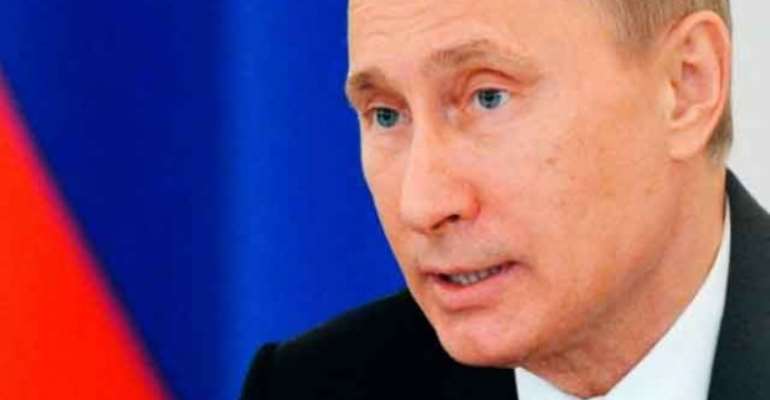NATO to suspend cooperation with Russia over Ukraine crisis

The North Atlantic Treaty Organisation (NATO) has announced a full review of its co-operation with Russia to try to pressure Moscow into backing down on Ukraine, and said it would “intensify” its engagement with Ukraine.
The organisation’s secretary-general, Anders Fogh Rasmussen, also announced on Wednesday that the military alliance was suspending a joint mission with Russia involving the destruction of Syrian chemical weapons.
“Kremlin has declared war not just on Ukraine, not just on Crimea but on whole world. The more time we lose, the more we have to lose,” Yulia Tymoshenko, Ukraine’s former prime minister, said.
NATO’s announcement came as top diplomats from Europe and the United States broke off a meeting with the Russian foreign minister, Sergey Lavrov, as a meeting with his Ukrainian counterpart, Andrey Deshchitsia also failed.
Speaking from Brussels, Rasmussen said the situation in Ukraine presented “serious implications for the security and stability” in the region and that Russia “continues to violate” Ukraine’s sovereignty and territorial integrity.
“Russia’s actions have consequences.”
In Paris the US secretary of state, John Kerry, and several foreign ministers met Lavrov to try to diffuse the tension in eastern Ukraine.
Kerry said that he would meet Lavrov in Rome on Thursday to continue discussions on how to “de-escalate” the situation in the Ukrainian region of Crimea, where pro-Russian troops have assumed control of much of the region’s infrastructure.
“We cannot, and will not allow the integrity of the sovereignty of the country of Ukraine to be violated,” he said.
Lavrov said his departure did not mean an end to efforts to resolve the current crisis.
“We agreed to continue those discussions in the days to come to see how best we can help stabilise, normalise the situation and overcome the crisis,” he said.
Earlier in the day, Lavrov said that the soldiers deployed to Crimea were not Russian, and that he could not order the “self defence” forces back to their bases because they did not answer to Moscow.
In Washington DC, meanwhile, the US defence secretary, Chuck Hagel, told senators that he was preparing to bolster military co-operation with Poland and Baltic states to show “support” for its allies after Russia’s intervention.
“The Defence Department is pursuing measures to support our allies,” Hagel told the Senate Armed Services Committee,
He added that the measures included expanded aviation training in Poland and increasing the US role in NATO’s air policing mission over Baltic countries.
The US has a small team of about 10 airmen stationed in Poland to support military training efforts while NATO has been conducting air patrols over Estonia, Latvia and Lithuania for 10 years, as they do not have viable air forces.
The European Commission meanwhile announced an aid package worth at least $15bn for the Ukraine government.
Ukraine is near bankruptcy and the EC announcement is in addition to a $1bn aid package promised by the US.
Putin does not recognise the new Ukrainian leadership in Kiev, which in turn accuses Russia of a military invasion in Crimea.
Troops believed to be Russian took over Crimea on Saturday, placing forces around its ferry, military bases and border posts.
A spokesman for Ukraine’s defence ministry told the AFP news agency on Wednesday that Russian forces seized part of a Ukrainian missile defence unit.
The command post and control centre of the base in Evpatoria, on the western coast of Crimea, however remained under Ukrainian control, the source said.
Elsewhere in Ukraine, about a dozen pro-Russian demonstrators were reportedly injured when an estimated 1,000 protesters took back the regional government building in the eastern Ukrainian city of Donetsk, an AFP reporter witnessed.
Some demonstrators could be seen with bloodied faces after they pushed through ranks of police with cries of “Russia!” and “Fascism will not pass!”
